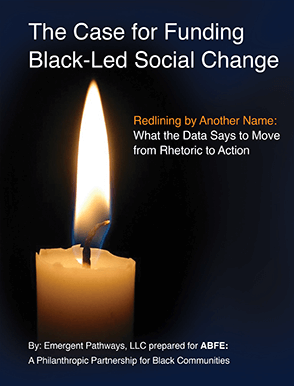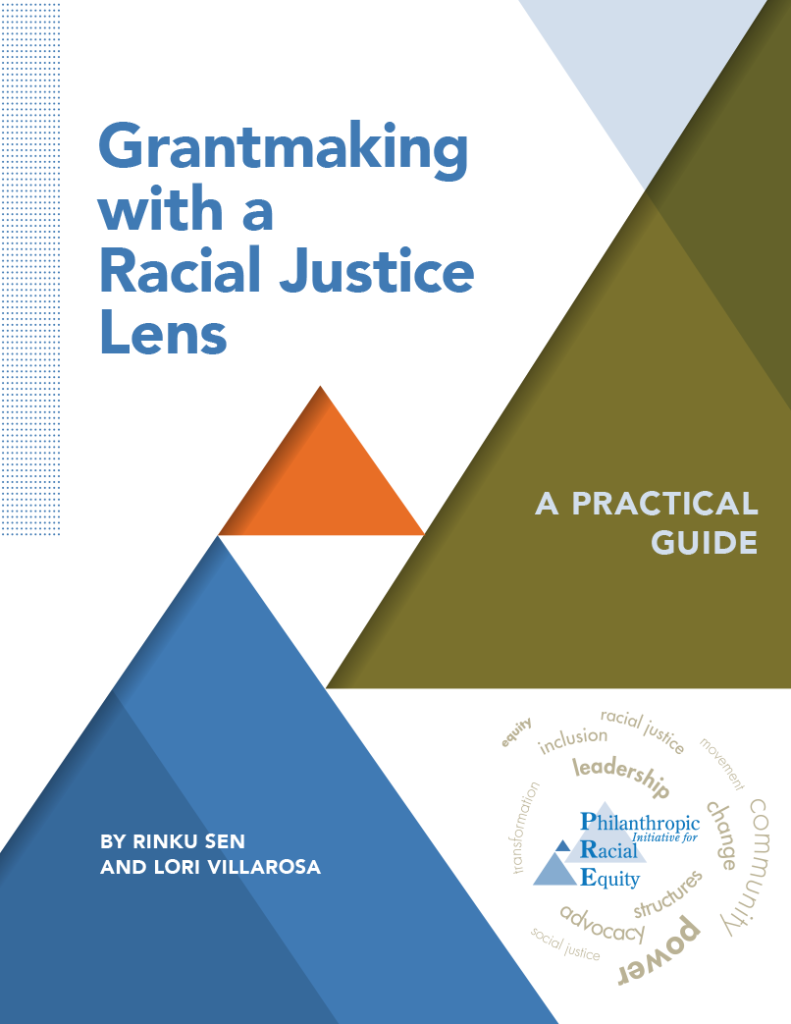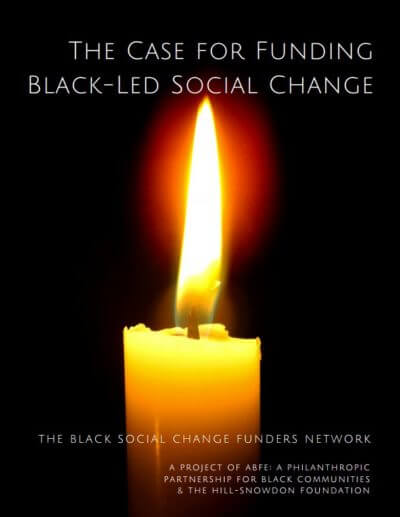Site Search
Search Tip: Search with " " to find exact matches.
The Case for Funding Black-Led Social Change: Redlining by Another Name: What the Data Says to Move from Rhetoric to Action
Placed-Based Impact Investing: Three Briefs for Practitioners
Seeking ways to maximize the social and economic returns of their place-based impact investments, foundations, CDFIs, private investors, and others are turning to collaboration.
Grantmaking with a Racial Justice Lens: A Practice Guide
Grantmaking with a Racial Justice Lens: A Practical Guide centers the perspectives of racial justice activists first, and then of funders working on change in their institutions, to identify best practices for driving philanthropy beyond racial equity toward racial justice.
Grants Management Professional Competency Model
Deciding Together: Shifting Power and Resources Through Participatory Grantmaking
In Deciding Together: Shifting Power and Resources Through Participatory Grantmaking, we look at why and how funders are engaging in participatory grantmaking and shifting decision-making power to the very communities impacted by funding decisions. Through examples and insights from a diverse range of participatory grantmakers, we explore the benefits, challenges, and models of participatory grantmaking.
The Case for Funding Black-Led Social Change: Case Statement
Benchmarking Survey: Electronic Payments to Grantees
Due to the COVID-19 pandemic, the transition to remote work has presented numerous challenges for nonprofits and foundations alike. With most grantees working off-site, foundations need to consider the most effective and cost-efficient way to get funds to them beyond mailing checks. This resource includes the results of a Philanthropy Network benchmarking survey of e-payment practices in relation to grantmaking and two discussion threads found on PEAK Grantmaking's Open Forum.
What’s Race Got to Do With It? Equity and Philanthropic Evaluation Practice
An increasing number of foundations are embracing racial equity/equity as a core value, and it is influencing how they see themselves and operate. However, evaluation has for the most part remained untouched. Knowing how race/racism has influenced both, philanthropy and evaluation, deepens our understanding of how philanthropic evaluation practice may unintentionally reinforce racism. Equitable evaluation shifts the current evaluation paradigm to one that centers equity/racial equity, so that it is more aligned with the values and intentions of current day philanthropic endeavors.
2018 Diversity Among Philanthropic Professionals Report
In 2018, Funders for LGBTQ Issues set out to survey the board and staff of foundations in order to identify how many LGBTQ people worked in philanthropy. In the process, the organization realized that it had an opportunity to not only ask about sexual orientation and gender identity but also to inquire about a range of personal identifiers. With the inaugural Diversity Among Philanthropic Professionals (DAPP) Survey, Funders for LGBTQ Issues asked participants to identify their role within their foundation, their age, gender identity, sexual orientation, race and ethnicity, and disability status. This report lays out the results of the DAPP survey in aggregate form.
COVID-19: Nelson Foundation's Grantee Communications
Proactive communication with your grantees is essential during times of disaster. The Nelson Foundation has kindly agreed to share some of their COVID-19 grantee email communications with Philanthropy Network membership.
Self-Dealing: A Concise Guide For Foundation Board and Staff
An overview on the self-dealing law, including definitions, common problem areas, exceptions, penalties, and resources.
Talent Justice Toolkit
This toolkit presents easy-to-use resources to help nonprofits and funders take action to advance talent justice. The tools can be used by both nonprofits and funders to increase their investments in talent justice at all stages of the nonprofit career lifecycle.




